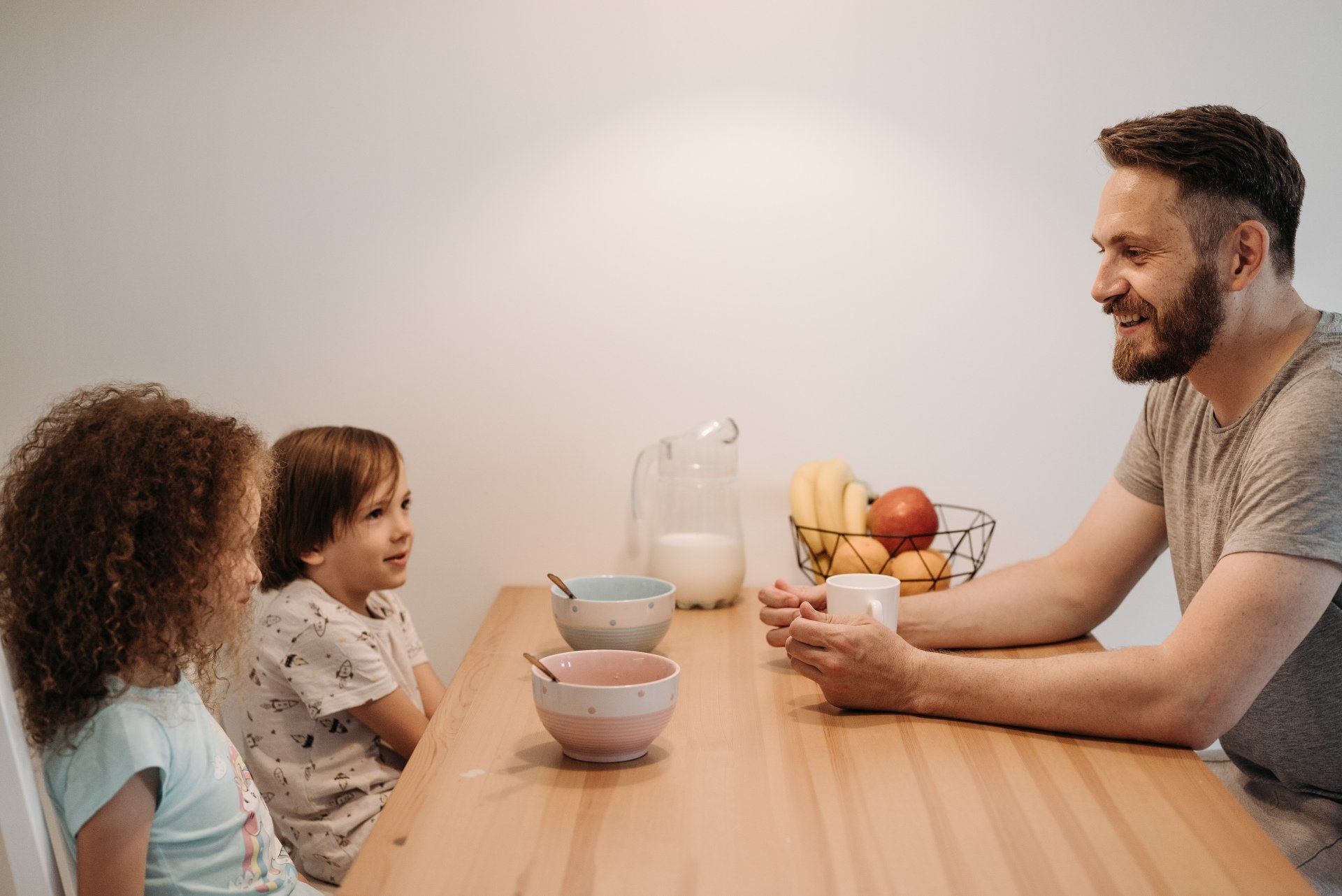Family Conversation Starters: Fun Topics For Everyone

When kids are small, they are often extremely forthcoming with information – so much so that sometimes you must beg them to stop sharing. As kids grow up, information sharing becomes less frequent. One day, you'll find yourself wondering what question you can ask that will give you more than a one-word answer!
Conversations are an important part of family life. They are the key to any successful relationship and offer family members understanding and a sense of belonging. So encouraging your family to speak to each other is what all parents should be doing to create an open, supportive and loving family environment.
What are the benefits of having family conversations?
Besides understanding one another and deepening the bond of trust between child and parent, here are some other benefits to starting conversations with your family:
Language development
To develop language and conversation skills young children need many opportunities to talk. Daily conversations will help your children express their thoughts, get what they need, resolve conflict, ask for help, and to learn from adults and from one another. All of this will have a positive effect on your child’s language development.
Intentional family communication is foundational and long-lasting
Families are primarily composed of involuntary relationships that are often widespread with emotional intensity, subtle innuendo, and histories of both great pleasure and intense grievances. When there is good communication between family members, learning becomes collaborative, accomplishments are acknowledged, problems are recognised, and solutions are provided. That’s the basis of any healthy relationship.
Healthy family communication builds social skills and cultivates good behaviour
Meaningful family conversations are so important to the overall health and growth of your family. Rely on open-ended questions that allows your family member to speak.
Always ask follow-up questions to draw out more details and keep the conversation going. These conversations are a good way to build relationships with your family and can greatly reduce stress and anxiety. Conversation is also a skill that in the future will assist and facilitate interactions in many different environments.
Respect the silence
Positive communication can be about respecting someone’s desire not to talk. Positive communication is about listening without judgment and expressing your own thoughts and feelings openly and respectfully.
It helps everyone in the family feel understood, respected and valued, and this strengthens your relationships. If you mention a topic that your child is uncomfortable discussing, respect his or her wishes and move on. They will come back to that topic once they are more comfortable.
Teach children about the non-verbal cues
Non-verbal communication is really important too. Effective understanding of non-verbal cues is the balancing of both words and movements in conversation.
Create an activity that will highlight these cues. For example, play the silent communication game where you are not allowed to talk. Use your body to let others know how you feel. [Side note: eye rolling is a non-verbal cure frequently understood and used by teenagers].
Family Topics & Conversion Starters
Probably the most important thing about family conversations is that they don’t actually need to be serious. Laughing and having fun can achieve togetherness just as much as a ‘deep-and-meaningful’. With that in mind, here are some fun conversation starters for your family:
- What’s the earliest childhood memory you have?
- What is your favourite thing about your family?
- What will your life be like 20 years from now?
- If you could eat only one food for the rest of your life, what would it be?
- How would you change the world if you could?
- What is the best book you have ever read?
- What do you know a lot about, that you could teach others?
- What qualities do you admire in other people?
- What would your superhero power be?
- If you could change the world, what would you do
- What is favorite family tradition?
A great book on this topic has been written by authors Gary Chapman and Ramon Presson. Both authors developed a treasure trove of 101 fun and thought-provoking questions to help families get the conversation started. These are available at C.U.M Books and are well worth the read.
So, to recap, it is really important to keep the lines of communication open with your family. Remember to ask the right questions and to listen to the answers. You may just learn a thing or two about the people closest to you.
Sources
10 Super fun sibling conversation starters
Inspired by: 45 Family Friendly Conversation Starters When You’re Stuck at Home














